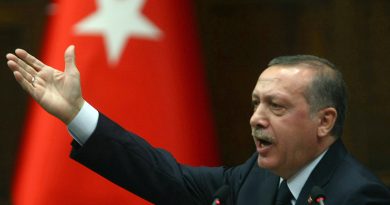FOCUS on: Adding African Nations as Permanent Security Council Members
Sophie Ulm
Staff Writer
Africa has long called for more representation in global governance, and recent calls for more representation at the United Nations Security Council (UNSC) have been gaining attention. According to the United Nations, Africa represents over 1 billion people and makes up 28 percent of UN membership, but only has three non-permanent seats on the UNSC.
Africa’s call for more representation at the UNSC addresses three key concerns: repairing historical injustices, recognizing Africa’s contributions to the modern world and adding legitimacy to the UN, reports The Conversation. Africa has long expressed a desire to be fully and equally represented at all levels, and addressing these issues is key to ensuring that representation is possible.
The UNSC is currently made up of five permanent members and ten rotating seats. The five permanent members are China, France, Russia, the United Kingdom and the United States. The remaining ten seats are divided with three seats going to Africa, two for Asia-Pacific, two for Latin America, two for Western Europe and other states, and one for Eastern Europe, according to Al Jazeera, and many view this dynamic as a result of the post-World War II power structure, a structure created at a time when many African nations were still under colonial rule.
In late September, a number of African leaders addressed the UN General Assembly calling for two new permanent seats. Kenya’s president, William Ruto, stated that “The Council is dysfunctional, undemocratic, non-inclusive, unaccountable, autocratic, and opaque,” reports the UN, emphasizing the unfairness of a body in which Africa is excluded while other nations have the right to veto the decisions of the other 193 UN member states.
These calls for change have been echoed by leaders like UN Secretary-General Antonio Guterres and UN General Assembly President Dennis Francis. They emphasized that Africa is over-represented in a number of the challenges that the UNSC has fought to address, and that almost half of all UN peacekeeping operations were in Africa and that roughly 40 percent of all peacekeepers were African, reports the BBC.
The U.S. was the first permanent UNSC member to voice support for Africa to gain permanent seats, but with caveats. The U.S. has announced that they recognize the injustice of the system and will support Africa’s bid for two permanent members, but without the veto power, reports The Associated Press. U.S. ambassador Linda Thomas-Greenfield said that this opposition was due to the fact that the veto makes the work of the UNSC “dysfunctional,” according to The Associated Press, but did not address the veto powers of the current permanent members.
Some nations, such as the Republic of Korea, have expressed that they support greater African representation on the UNSC, but that the focus should be on expanding non-permanent seats as changing the permanent seats might cement current power dynamics, reports the UN. Many African countries have pushed back on this viewpoint, mainly in view of the veto power that the current permanent members have. African leaders emphasize that, while they support the abolition of the veto power, so long as certain countries maintain their veto power, as long as other nations have it, it should be expanded to new permanent members as well.
The African Union has proposed that, if Africa were to receive the two new permanent seats, it would vote on which two African nations would receive them, according to the UN. While there is still uncertainty about which countries would be selected, five nations have been highlighted recently that would make sense either economically, monetarily, or socially. Those nations are South Africa, Egypt, Nigeria, Ethiopia, and the Democratic Republic of the Congo, reports The Atlantic.
Africa already has a great deal of influence in the UNSC, particularly as Russia and the U.S. attempt to gain and maintain influence in the region, reports CNN. The Atlantic reports that China is also a major presence in Africa, having built nearly one-third of Africa’s infrastructure projects, though these projects have resulted in a great amount of debt owed to China by African nations. But this influence rests mostly in soft power and does not mean that there is equal power between the African states and members of the permanent five.
Image courtesy of Getty Images


